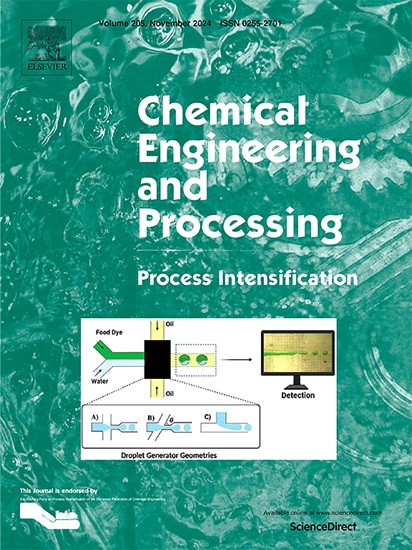基于先验知识的多轮多目标贝叶斯优化:o -甲基异脲的连续流合成与放大
IF 3.8
3区 工程技术
Q3 ENERGY & FUELS
Chemical Engineering and Processing - Process Intensification
Pub Date : 2025-05-24
DOI:10.1016/j.cep.2025.110376
引用次数: 0
摘要
优化和扩大化学反应是从实验室向工业生产过渡的关键一步,通常涉及生产效率和成本等多个目标之间的权衡。同时,医药关键中间体o -甲基异脲的传统合成工艺已不能满足现代智能化、绿色化生产的要求,亟待改进。本研究展示了多目标贝叶斯优化(MOBO)在o -甲基异脲连续流合成中的应用。通过利用历史反应数据,随着参数范围的变化,我们加速了优化,实现了快速推断和调整。利用配备MOBO和迁移学习功能的放大连续流系统,我们确定了Pareto前缘的最佳条件,在第三轮优化中实现了高达52.2 g/h的产量,e因子低至0.557,同时保持了约75%的产量。这些结果突出了贝叶斯优化在加速反应优化和促进从实验室到工业规模生产的过渡方面的可扩展性和效率。本文章由计算机程序翻译,如有差异,请以英文原文为准。
Prior knowledge-based multi-round multi-objective Bayesian optimization: continuous flow synthesis and scale-up of O-methylisourea
Optimizing and scaling up chemical reactions is a critical step in transitioning from laboratory to industrial production, often involving trade-offs between multiple objectives such as production efficiency and cost. Meanwhile, the traditional synthesis process for the key pharmaceutical intermediate O-methylisourea no longer meets the demands of modern smart and green production, requiring urgent improvement. This study demonstrates the use of multi-objective Bayesian optimization (MOBO) for the continuous flow synthesis of O-methylisourea. By leveraging historical reaction data, we accelerated optimization as parameter ranges changed, enabling rapid inference and adjustment. Using a scaled-up continuous flow system equipped with MOBO and transfer learning capabilities, we identified optimal conditions along the Pareto front, achieving a production rate of up to 52.2 g/h and an E-factor as low as 0.557 during the third round of optimization, while maintaining a yield of approximately 75 %. These results highlight the scalability and efficiency of Bayesian optimization in accelerating reaction optimization and facilitating the transition from laboratory to industrial-scale production.
求助全文
通过发布文献求助,成功后即可免费获取论文全文。
去求助
来源期刊
CiteScore
7.80
自引率
9.30%
发文量
408
审稿时长
49 days
期刊介绍:
Chemical Engineering and Processing: Process Intensification is intended for practicing researchers in industry and academia, working in the field of Process Engineering and related to the subject of Process Intensification.Articles published in the Journal demonstrate how novel discoveries, developments and theories in the field of Process Engineering and in particular Process Intensification may be used for analysis and design of innovative equipment and processing methods with substantially improved sustainability, efficiency and environmental performance.

 求助内容:
求助内容: 应助结果提醒方式:
应助结果提醒方式:


